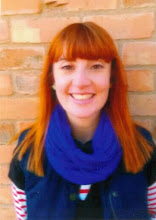Web of Science has recently released a new way of searching for authors and curating author profiles.
New Author Search
Thousands of authors in Web of Science (WoS) Core Collection have been brought together with information from the Clarivate researcher profile service, Publons, and matched up with available researchers and ORCIDs to create new Author Records inside Web of Science. This makes life much easier than before to find publications by a particular author and view their author profile.As you type, the WoS will suggest entries that match the database. For example, if a First Name or initial matches the Surname you have just entered it will suggest these to you as you type, reducing the likelihood of running a search with no results. When a large number of records matches the name you are searching; for example, Cheng, Smith or Lopez, you are presented with country and affiliation options to help narrow down the results.
 |
| Screenshot from Web of Science New Author Search. © 2019 Clarivate |
New Author Record view
The tool is currently in Beta, which means most of the author records have been algorithmically generated, i.e. it has brought together publications it thinks belong to a given author. Early test searches in the Library have shown relative accuracy in identifying Leicester researchers, but there are clear cases where papers don't belong on a person's profile! This introduces what Web of Science
is calling a "collaborative approach to improving researcher identity and disambiguation".Each author record indicates whether, or not, it has been claimed by the author. When an author claims their author record they are taken to their Publons profile (or the option to create one) to weed out the papers that don't belong to them and add-in ones that do. If the author's ORCiD record isn't currently linked to their Publons profile they are shown how to link these two profiles up. Once ORCiD and Publons are linked together they will update each other automatically, so linking the two is highly recommended.
 |
| Screenshot of a claimed Author Record. © 2019 Clarivate |
Publons and ORCiD profiles are only available to the author, but what if a busy academic wants a helping hand to tidy their author records? An unclaimed author record has a box on the right-hand side to 'Correct author record'. This allows someone who isn't the author to remove and add publications. It's worth noting however that once an author has claimed their record, only they can make changes to it.
In Summary
The WoS new Author Search and Author Record makes searching and curating publications in the Web of Science Core Collection very easy indeed. Quite a lot of work needs to go in to make the author records an accurate representation of their namesake, however, the powerful algorithm has helped give individuals a head start, and tidying a profile doesn't take very long.
Having an accurate Web of Science Author Record (for publications) a Publons profile (for peer-review and journal editing activity) and an ORCiD (the unique number recognised in research eco-systems worldwide) carries long-term benefits.
- A comprehensive lists of research activity that updates automatically
- Citation metrics that accurately reflect the attention your work receives
- Increased visibility of your work on an internationally recognised profile
Help is on-hand from the Library Research Services Team.


